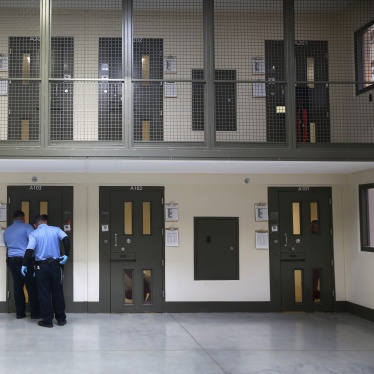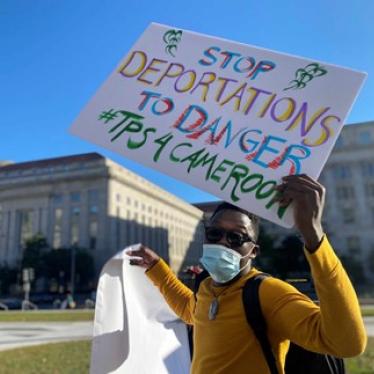Social media has been awash with memes of dogs and cats since the United States presidential debate on September 10. Perhaps a good laugh is the best antidote to the grotesque stereotyping and fearmongering of Haitian immigrants. But the image that came to my mind was that of horses and mounted US Border Patrol agents in 2021 as they aggressively snapped their reins toward Haitian migrants near the border in Del Rio, Texas.
I thought back to the disparate treatment I witnessed at Guantánamo Bay, Cuba, in the early 1990s when interdicted Black Haitian asylum seekers were held in tents on the sizzling hot tarmac while racially diverse Cuban asylum seekers were housed on a grassy field nearby. That is, until US authorities flew them to a nicer camp in the Panama Canal Zone. Meanwhile, the Haitians remained behind, until most were sent back to Haiti.
I thought of David Joseph, a young Haitian asylum seeker I met at the Krome Detention Center in the Florida everglades in 2004. He couldn’t lift his head out of his hands. “How are you feeling,” I asked. “It’s a jail. It’s a jail,” he answered. Courts had twice ordered David’s release from immigration detention, finding his asylum claim to be credible and his likelihood to abscond negligible. But he remained detained for two years, as the US attorney general at the time, John Ashcroft, stepped in to use David’s case to establish a precedent that all Haitians should be detained; not because any individually represented a security threat, but to deter others from fleeing their country, which he said would “injure national security by diverting valuable Coast Guard … resources.”
From 2011 through 2023, the US refugee resettlement program admitted just 34 Haitians, while admitting 624,555 refugees from other countries.
As president, Donald Trump in an Oval Office meeting singled out Haitians as a national group that should not be considered for immigration, characterizing them, along with Africans, as coming from “shithole countries.”
During the more than 40 years I have worked on US asylum policy, I have witnessed too many double standards and too much ill-treatment under both Democratic and Republican presidential administrations to find any humor in the ugly prejudices and dehumanization of Haitian asylum seekers and other Black migrants so often expressed in word and action by US politicians and immigration authorities.
Both politicians and the public need to confront the racism that colors US immigration and asylum policies and to respect Haitians' and other Black migrants' fundamental rights to life and to be free from persecution and discrimination. The next US administration should recognize the ongoing violence and insecurity in Haiti that makes return unsafe and extend temporary protected status to Haitian migrants, while the public should show understanding and welcome persecuted people eager to contribute to their local communities.










